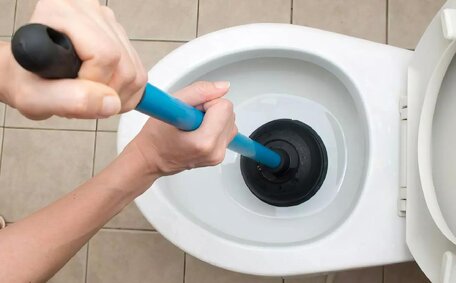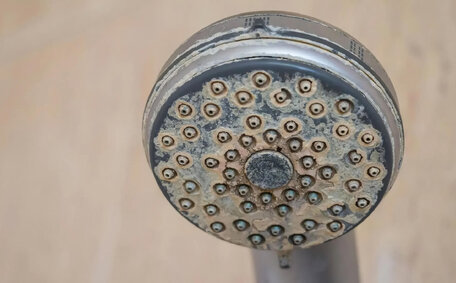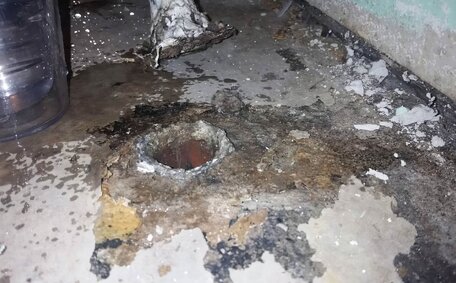Introduction to Gas Regulators
First-stage and second-stage regulators are essential components that reduce high-pressure gas to safe levels for appliance use.
After the first-stage reduction, the regulator further adjusts gas pressure to ensure safe and efficient appliance function in various settings.
Our team at Emu Plains Plumbing specialises in the installation, maintenance, and repair of LP gas regulators, ensuring your system converts high-pressure gas for safe household or RV use.
A failing regulator can impair critical components like the diaphragm and bypass valve, jeopardizing the maintenance of correct gas pressure. Analyzing gas flow and regulator synergy is key in diagnosing issues, drawing on our professional expertise.
Common Signs of a Faulty Gas Regulator
Identifying a faulty propane regulator often involves recognizing the following common signs:
- Fluctuating gas pressure - Fluctuating flame intensity or burner pressure often signal a failing propane regulator, likely due to uneven output pressure.
- A slight hiss or whistling noise emerging from the regulator might be a sign of faulty propane regulators, possibly indicative of problems with gas flow or pressure.
- Difficulty lighting appliances - If burners won’t ignite or light, check for flow restrictions to ascertain if the problem is with the burner or another component.
- The presence of weak flames or yellow tints, indicators of low gas pressure propane, is an explicit departure from the optimum blue flame, often revealing a potential combustion problem.
- In some cases, detecting the rotten eggs smell of natural gas or a bad propane scent around your regulator most likely indicates a dangerous leak.
- Damage or corrosion - Visible wear, rust, or other deterioration can impact performance.
Regular soapy water leak tests at gas line connections can identify issues like erratic propane flow or excess pressure impacting your gas grill system’s performance.
Troubleshooting a Faulty Gas Regulator
If you suspect a faulty gas grill regulator, take several preliminary actions to diagnose the issue before contacting Emu Plains Plumbing for assistance:
- Perform a soapy water leak test. Turn off the propane by following the shutdown procedure at the supply point and then apply soap solution to the regulator’s connections with a brush. Switch on the off gas supply and closely watch for too much bubbling, which can help determine if there’s a gas leak.
- Commence a pressure gas assessment - From what I know about gas safety, confirming all burners are dormant is paramount before incrementally activating each device linked to the regulator. Use an affordable pressure gauge to measure if the propane pressure drops below the regulator’s indicated outlet pressure during gas flow. Pressure fluctuations are a clear sign of a faulty propane regulator, particularly when the regulator is struggling to maintain consistent pressure.
- Do a lock-up test. Turn on all appliances to high, then quickly turn off all. Inspect regulator pressure with a gauge to verify that outlet pressure stops rising immediately once demand ceases and doesn’t increase more than 10% over the preset pressure. A continuous rise in pressure could indicate a regulator malfunction, allowing excessive gas flow without proper restriction.
Our technicians attest that to maintain optimal propane levels, your regulator should be replaced every five years or sooner if visible damage or corrosion is detected. Regulators showing persistent low pressure, fluctuations, or failure to maintain settings should be replaced without delay.
For extra help with troubleshooting the propane tank for your propane grill or natural gas regulators, reach out to the experts at Emu Plains Plumbing on 1300 349 338 to arrange a service.
When to Call a Professional
There are a few key situations when you should contact our team of experts at Emu Plains Plumbing regarding your gas regulator:
- You smell gas or detect leaks - If at any point you notice the rotten egg odour of gas or bubbles forming during a soap test, immediately shut off the gas tank valve and call us at 1300 349 338. Gas leaks can cause severe fire or explosion hazards and must be addressed urgently by professionals.
- Pressure or flow issues persist - If you’ve tried the troubleshooting steps of leak tests, flow-pressure tests, and lock-up tests but your regulator still displays problems like fluctuating pressure, insufficient gas flow, or if it shuts off gas unintentionally, then professional assistance is advised.
- Signs of damage are visible - Corrosion, dents, or other deterioration can impact regulator performance, safety, and lifespan. Our techs can asses when you need replace your regulator due to wear or damage.
- Replacement or repairs are complex - When signs show your regulator may be bad, while some basic maintenance like cleaning or adjusting pressure settings can be DIY, tasks like replacing old regulators, fixing leaks, or modifying gas piping should only be handled by licenced professionals like our plumbers due to the technical expertise and specialty tools required.
For any issues related to your rv gas grill pressure regulator, Emu Plains Plumbing has the experience to troubleshoot faults, conduct repairs, or replace ageing equipment. Contact us at [email protected] or 1300 349 338 to schedule gas regulator service.
Replacing a Faulty Gas Regulator
Consider replacing your regulator when faced with persistent performance issues, visible damage, or if it exceeds five years to ensure safe and efficient operation.
Replacing a faulty propane regulator offers several benefits:
- Achieving restored gas pressure is possible by turning the adjustment nut and making flow adjustments for propane tanks in your gas grill setup
- Enhanced ignition reliability and performance for your stove and other gas-powered appliances
- Enhanced safety due to fewer leaks or failures
- Improved efficiency and gas usage
- Longer lifespan without deterioration
If replacement of regulator components is due, our licenced technicians can ensure efficiency and safety for both residential and commercial propane systems.
The sequence of replacing a gas cylinder regulator includes:
- Initiating the automatic changeover at the shutoff valve to turn off the gas supply and depressurise gas lines for your grill regulator
- Disconnecting old regulator and gas piping
- Installing a new regulator, or conducting a change out to ensure proper sizing for your usage needs
- When installing a new one with the correct outlet pressure settings as needed
- Performing leak checks to confirm your propane regulator is operating correctly and meets safety standards
- Reattach hoses accurately, then reconnect the gas supply to resume service
Our specialisation lies in integrating vital safety feature into faulty propane regulator replacements for Emu Plains propane system owners. Contact Emu Plains Plumbing at 1300 349 338 or [email protected] to schedule replacement service if you suspect your regulator is faulty.
Maintaining Your Gas Regulator
Regular maintenance of your gas regulator is crucial for safe operation and peak performance. Follow these tips to maintain your regulator efficiently and know when to seek professional servicing:
- Conduct visual inspections semi-annually - Assess how much wear is present in the form of dents, cracks, or corrosion that could hint at when you’ll need to service or replace your regulator.
- Annually apply the soapy water technique to test for leaks, paying particular attention to brass connections for bubble formation.
- Inform your plumber of any concerns with your propane regulator during routine checks for thorough flow-pressure testing with accurate tools.
- Consider scheduling time to have regulator components inspected and potentially replaced every 5-7 years due to deterioration.
- Ensure vents are clear by gently blowing air through them to dislodge any debris, moisture, or insect nests that could block ventilation.
- Wipe down the regulator exterior periodically to prevent dirt, grease, or other grime buildup.
- Verify the regulator is correctly set to the 'off’ position, appropriate for your propane system’s BTU requirements, to prevent sizing issues.
- Keep hoses and fittings on the propane tank connected to your regulator tightly sealed to prevent leaks, and leave the gas valve open when idle.
- Be aware of signs indicating wear and tear or reduced performance like pressure fluctuations.
Maintaining your gas regulator properly and preemptively replacing ageing units can maximise lifespan while preventing hazardous situations. Contact Emu Plains Plumbing at 1300 349 338 if you need assistance with regulator testing, repairs, or replacements.
Safety Precautions
Proper precautions are vital due to the high flammability and explosion risk of propane gas.
Here are some key safety tips to follow:
- Always secure the propane tank valve and depressurise lines before undertaking any work on your system. This recalls that critical moment when the valve was turned, effectively halting the gas supply.
- Following service on regulators, valves, or fittings, use a soap test to detect leaks; the presence of bubbles indicates gas escape.
- Keep the valve in the 'off’ position at regulator vents, echoing initial supply shutoff, to ensure they’re clear for proper gas venting.
- Employ protective equipment like safety glasses and gloves when manoeuvring a gas valve and regulators.
- Keep sources of ignition like open flames, sparks, or cigarettes away while working on a propane system.
- After installations, repairs, or replacements, perform flow, pressure, and leak tests to ascertain safety—matching the caution exercised during initial activation for high-grade security.
- Carefully follow all manufacturer instructions and guidance for your regulator.
- Be cautious when rejoining regulators and make sure to turn regulator knobs and the gas supply back on gently.
- Replace ageing regulators since deteriorating components increase risk.
- Call Emu Plains Plumbing immediately at 1300 349 338 if you ever smell gas or can’t control leaks.
As a reminder, propane gas has a higher heating value than natural gas so understanding proper safety protocols when managing your propane tank regulator and gas appliances is extremely important to prevent fire hazards or explosions.
Our expertise extends to addressing safety concerns with propane systems. We are equipped to assist with regulator maintenance, replacements, leak repairs, and installations, all in line with Australian standards. For any regulator or propane system safety issues, please contact Emu Plains Plumbing.






